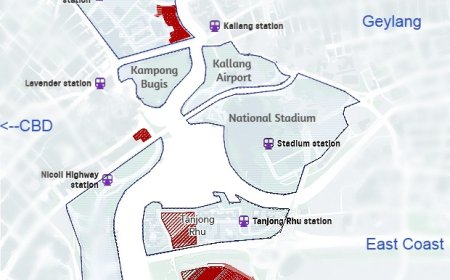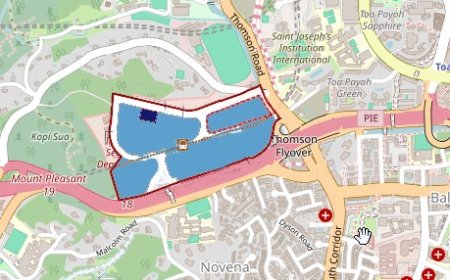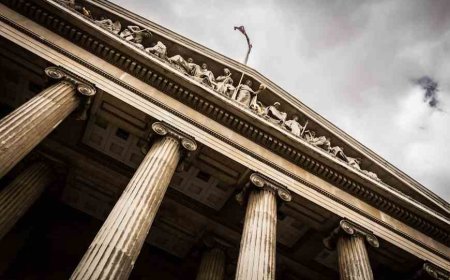A Guide to Setting Up a Trust in Singapore
Understand trusts in Singapore: legal vs beneficial interests, trust types, asset protection, trustee duties, and a step-by-step setup guide. Includes examples, FAQs, tips, and comparison tables.

What Is a Trust & How to Set One Up (Singapore Edition)
Executive Summary (Plain-English)
-
A trust is a legal arrangement where a settlor transfers assets to a trustee to manage for beneficiaries.
-
The trustee holds legal title; beneficiaries hold equitable (beneficial) interests.
-
In Singapore, trusts are governed primarily by the Trustees Act and supported by common law. Licensed trust companies are separately regulated under the Trust Companies Act.
-
Trusts help with asset protection, succession planning without probate delays, financial stewardship, charitable giving, and potentially tax efficiency depending on structure and jurisdiction.
-
Setting up a trust requires clear objectives, picking the right trust type, choosing a capable trustee, careful drafting, proper funding, and ongoing governance.
Legal vs. Equitable Interests (Why Trusts Matter)
-
Legal interest/title: The person or entity officially recorded as owner (e.g., on a land register or share register).
-
Equitable (beneficial) interest: The right to benefit from an asset (income, use, eventual distribution).
-
In a typical trust, the trustee owns legal title; the beneficiaries own the equitable interest. This split enables professional management and protection features.
Key Example – Everyday Ownership vs Trust
-
Homeowner: Usually holds both legal and beneficial title to the house.
-
Trust: The trustee’s name appears as owner (legal), while the child named as beneficiary enjoys the benefits (equitable).
Core Roles in a Trust
-
Settlor: Creates the trust and contributes assets.
-
Trustee: Holds legal title, manages assets, follows the trust deed and law, owes fiduciary duties.
-
Beneficiary: Receives benefit (income/capital) per the deed.
-
Protector (optional): Oversees or consents to certain trustee actions (e.g., replacing trustees, approving major distributions).
Key Benefits of Trusts
-
Asset protection: Segregation from the settlor’s personal estate can ring-fence assets (subject to clawback and anti-fraud rules).
-
Succession planning: Distributions proceed per the trust deed without probate delays; timing and conditions can be tailored.
-
Financial stewardship: Professional management and investment discipline.
-
Support for minors/special needs: Spendthrift safeguards and tailored support.
-
Charitable impact: Structured giving with governance.
-
Business continuity: Hold family business shares with clear voting and succession rules.
-
Confidentiality: Trust terms are generally private (subject to regulatory obligations).
Common Singapore Trust Types (With When to Use Them)
1) Inter Vivos (Living) Trust
-
Created during settlor’s lifetime; funded immediately.
-
Useful for asset protection, incapacity planning, and immediate management.
-
Example: A business owner transfers investment portfolios to a trust; trustee pays children’s education expenses per a schedule.
2) Testamentary Trust
-
Takes effect via Will upon death; no trust exists during lifetime.
-
Useful where beneficiaries are minors or need long-term support.
-
Example: Will creates a trust to release funds to a child at ages 21, 25, and 30.
3) Standby Trust
-
Established now, lightly funded or dormant, springs into active use upon a defined event (incapacity or death).
-
Lower carry costs while alive; structure ready when needed.
-
Example: Trust is set up now; insurance proceeds and specified assets flow in if the settlor becomes incapacitated or passes away.
4) Discretionary vs Fixed Trusts
-
Discretionary: Trustee chooses who gets what and when among a class of beneficiaries (within deed limits). Flexible for changing needs and risk profiles.
-
Fixed: Beneficiaries’ shares and timing are pre-set; trustee follows the formula.
5) Revocable vs Irrevocable
-
Revocable: Settlor can change or revoke. More control, potentially weaker asset-protection optics.
-
Irrevocable: Settlor cannot revoke; stronger ring-fencing (subject to anti-fraud rules and look-back periods).
6) Special-Purpose Trusts (Selected Examples)
-
Special needs trust: Managed distributions for beneficiaries with disabilities or care needs.
-
Insurance (statutory) trust concept: Life policy proceeds may be held on trust for spouse/children by operation of statute; dedicated “insurance trust” planning can complement this.
-
Charitable trust: Assets managed strictly for charitable purposes.
Comparison Tables
Discretionary vs Fixed Trusts
| Feature | Discretionary Trust | Fixed Trust |
|---|---|---|
| Distribution control | Trustee decides within deed limits | Pre-set in deed |
| Flexibility | High | Low |
| Asset-protection optics | Generally stronger | Generally predictable (less flexible) |
| Family dynamics | Adaptable to life changes | Transparent and formulaic |
Revocable vs Irrevocable
| Feature | Revocable | Irrevocable |
|---|---|---|
| Settlor control | High (can amend/revoke) | Low (no revocation) |
| Asset-protection optics | Weaker | Stronger |
| Tax/estate effects | Varies; may be attributed | Varies; often more distinct separation |
| Complexity | Lower | Higher (and more permanent) |
Trust vs Will (for Wealth Transfer)
| Feature | Trust | Will (no trust) |
|---|---|---|
| Probate delay | Avoidable for trust assets | Required before distribution |
| Timing control | Fine-grained (ages, milestones) | Lump-sum unless testamentary trust |
| Privacy | Generally private | Will may become public in probate |
| Management during incapacity | Yes (if inter vivos) | No (Will only operates after death) |
Individual Trustee vs Licensed Corporate Trustee
| Feature | Individual | Corporate |
|---|---|---|
| Continuity | Risk of death/incapacity | Institutional continuity |
| Expertise | Varies | Professional fiduciary standards |
| Cost | Lower | Higher |
| Governance | Personal diligence | Formal processes, compliance, AML/CFT |
Trust vs Holding Company for Asset Protection
| Feature | Trust | Holding Company |
|---|---|---|
| Beneficial ownership | Beneficiaries | Shareholders (often the same family) |
| Control optics | Trustee/protector | Directors/shareholders |
| Asset protection | Ring-fencing via split title | Depends on separateness and director conduct |
| Succession | Built into deed | Requires shareholder agreements/Wills |
Trustee Powers & Duties (Singapore Focus)
-
Source of powers: Primarily from the trust deed; additionally supported by the Trustees Act and common law.
-
Duty of care: Exercise reasonable care and skill; act in beneficiaries’ best interests; act impartially between beneficiaries.
-
Investment duties: Invest only in authorised assets under the deed; consider suitability and diversification; seek professional advice where prudent; record rationale.
-
Administration: Keep proper accounts, timely distributions, tax filings, minutes, and records.
-
Conflicts & loyalty: Avoid conflicts; no unauthorised profit; follow deed directions.
-
Regulatory (AML/CFT/CPF/Tax): Identify and verify parties (settlor, trustees, protectors, beneficiaries, controllers), maintain current records, and comply with Singapore’s anti-money-laundering and counter-terrorism financing standards. Licensed trust companies have additional obligations.
-
Breach: Civil remedies (compensation, tracing, account of profits) and, for misappropriation, potential criminal liability under “criminal breach of trust” provisions of the Penal Code.
How to Set Up a Trust in Singapore (Step-by-Step)
-
Define Objectives
-
What problems are you solving? (Probate avoidance, protection from creditor risks, special needs support, education funding, philanthropy, business continuity.)
-
-
List and Classify Assets
-
Identify what goes in now vs later: cash, portfolios, real estate, business shares, insurance proceeds.
-
Note special regimes: CPF funds are governed by CPF rules; typically not transferred into a private trust during lifetime but can be coordinated via nominations and estate planning.
-
-
Choose Trust Type
-
Inter vivos vs testamentary vs standby; discretionary vs fixed; revocable vs irrevocable.
-
-
Select Trustee(s) & Protector
-
Individual, corporate, or co-trustee model. Consider continuity, expertise, and costs.
-
Decide protector powers (appoint/remove trustees; consent for major actions).
-
-
Design Distribution Policy
-
Ages, milestones, needs-based support, education allowances, healthcare contingencies, hardship provisions.
-
-
Draft the Trust Deed
-
Trustee powers and restrictions, investment guidelines, distribution standards, addition/exclusion of beneficiaries, protector provisions, trustee remuneration, replacement mechanics, governing law, dispute resolution.
-
-
Address Tax & Cross-Border Issues
-
Income attribution, withholding, double-taxation risks, beneficiary residency. Seek professional tax advice for multi-jurisdiction assets or beneficiaries.
-
-
Onboard with Trustee
-
Provide KYC/AML documents; source-of-funds/source-of-wealth evidence; complete internal compliance.
-
-
Fund the Trust (Constitution)
-
Transfer legal title for each asset class correctly (bank accounts, portfolios, shares, real estate—may require stamp duties and filings).
-
-
Operationalise Governance
-
Investment policy statement, meeting cadence, record-keeping, beneficiary communications process.
-
Support Documents
-
Letter of Wishes (non-binding guidance), powers of attorney, insurance nominations aligned with the trust, digital asset access protocols.
-
Annual Review
-
Revisit objectives, beneficiaries’ circumstances, tax changes, and trustee performance.
Three Practical Scenarios (Illustrative)
Scenario A – Young Family & Probate Avoidance
-
Objective: Ensure spouse and children have immediate support if the parent dies.
-
Approach: Standby trust created now; life insurance nominations direct proceeds to the trust; Letter of Wishes sets education and living allowances.
-
Outcome: On death, trustee pays out monthly support; no probate delays for the insurance portion.
Scenario B – Entrepreneur Ring-Fencing
-
Objective: Separate personal wealth from business risks.
-
Approach: Inter vivos discretionary trust holds marketable securities and an investment property; independent corporate trustee; protector approves major distributions.
-
Outcome: Personal nest egg professionally managed and insulated from future business creditor claims (subject to anti-fraud and look-back rules).
Scenario C – Special Needs Adult Child
-
Objective: Lifetime care and structured support.
-
Approach: Inter vivos or testamentary trust with discretionary distributions tied to care plans; successor trustees named; professional trustee for continuity.
-
Outcome: Stable, controlled support over the beneficiary’s lifetime with transparent governance.
Risks, Limits & Compliance Considerations
-
Clawback/Fraudulent Transfers: Transfers made to defeat creditors can be unwound under insolvency and fraudulent conveyance rules.
-
Sham Trust Risk: If the settlor retains de facto control contrary to the deed, courts may disregard the trust.
-
Cross-Border Assets: Foreign situs assets may be subject to local forced heirship, taxes, or transfer restrictions.
-
Tax Traps: Income may be taxed in the trust or in beneficiaries’ hands; distributions across borders can trigger reporting.
-
Administration Failures: Poor records, unauthorised investments, or conflicts can amount to breach of trust.
Practical Tips (Actionable)
-
Use a professional trustee if assets or dynamics are complex.
-
Keep the Letter of Wishes updated; it guides trustee discretion without binding them.
-
Separate accounts for trust assets; never commingle funds.
-
Write an Investment Policy Statement and review annually.
-
Avoid excessive reserved powers that undermine asset-protection optics.
-
Align your Will, insurance nominations, and any LPAs with the trust.
-
Document distributions and advice sought (audit trail).
-
Plan for successor trustees and protectors.
-
Reassess after major life events (marriage, divorce, sale of a business).
Key Takeaways
-
Trusts split legal and beneficial ownership to enable governance and protection.
-
The right type (discretionary/fixed, revocable/irrevocable, inter vivos/testamentary/standby) depends on goals.
-
Trustee duties are strict; good administration is non-negotiable.
-
Funding and compliance make or break effectiveness.
-
Review regularly as laws, family needs, and assets evolve.
FAQs (Singapore-Focused) — 18 Common Questions
-
What exactly is a trust in Singapore?
A legal arrangement where a trustee holds legal title to assets for beneficiaries, governed by a trust deed and applicable law. -
Do I lose control of my assets if I set up a trust?
In an irrevocable trust, yes, you give up control for protection benefits. Revocable trusts allow changes but may weaken protection optics. -
Is a trust only for the ultra-wealthy?
No. Families use trusts for probate avoidance, stewardship, special-needs planning, and education funding at various wealth levels. -
Can I be my own trustee?
Yes, but using an independent or corporate trustee improves continuity, governance, and perceived integrity. -
What is a protector and do I need one?
A protector oversees certain trustee actions. Useful for added checks where a family’s needs are complex. -
Do trusts reduce taxes?
They can re-allocate who is taxed and when. Outcomes depend on the trust type, asset classes, and beneficiaries’ tax residency. Seek tax advice. -
Can a trust protect assets from creditors?
It can help ring-fence assets if set up properly and not to defraud creditors. Transfers intended to defeat creditors can be clawed back. -
How does a trust compare to a Will?
A trust can avoid probate for trust assets and control timing/conditions. A Will is still needed for non-trust assets and guardianship matters. -
If a witness to my Will has died, is my Will still valid?
Generally yes; the Will’s validity doesn’t depend on witnesses being alive later. You must have met witnessing requirements when signing. -
Can I put my CPF savings into a private trust during my lifetime?
CPF monies are governed by CPF rules and generally cannot be assigned into a private trust during lifetime. Coordinate via nominations and aligned estate planning. -
What assets can I place in a trust?
Cash, portfolios, company shares, real estate, and (via nomination) insurance proceeds. Each has transfer formalities and potential duties/taxes. -
Who regulates trustees in Singapore?
Trustee duties arise under the Trustees Act and common law. Licensed trust companies are regulated under the Trust Companies Act and must meet AML/CFT standards. -
What are the trustee’s main duties?
Act with care and skill, invest prudently, avoid conflicts, follow the deed, keep records, and act in beneficiaries’ best interests. -
What happens if the trustee breaches duty?
Beneficiaries can seek civil remedies like compensation or account of profits. Misappropriation can trigger criminal liability. -
How long does it take to set up a trust?
Time varies with complexity, asset transfers, and compliance onboarding. Allow for drafting, KYC/AML, and funding steps. -
Can a trust own overseas assets?
Yes, but foreign laws may affect transferability, taxes, forced heirship, and enforcement. Get cross-border advice. -
Should I choose a discretionary or fixed trust?
Discretionary offers flexibility for changing needs; fixed offers predictability. Align with family dynamics and risk profile. -
What ongoing costs should I expect?
Legal drafting, trustee fees, investment management, compliance, tax filings, and audit/valuation fees depending on asset mix.
Algene Toh
Disclaimer: The information presented on BSR2.com is intended for general informational purposes only. It does not constitute legal, financial, investment, or real estate advice and should not be relied upon as such. While every effort has been made to ensure the accuracy, reliability, and completeness of the content at the time of publication, all data is derived from publicly available sources and may be subject to change without notice. BSR2.com makes no representations or warranties of any kind, express or implied, regarding the suitability, timeliness, or accuracy of the information provided for any specific purpose. Users are strongly encouraged to seek independent advice from qualified professionals before making any decisions based on the content found on this website. BSR2.com shall not be held liable for any loss, damage, or consequence, whether direct or indirect, arising from the use of or reliance on the information provided. The content is intended as a general guide and does not take into account individual circumstances.
What's Your Reaction?
 Like
0
Like
0
 Dislike
0
Dislike
0
 Love
0
Love
0
 Funny
0
Funny
0
 Angry
0
Angry
0
 Sad
0
Sad
0
 Wow
0
Wow
0








































